[this is a linkpost to Analysis of World Records in Speedrunning]
ETA: a more recent analysis can be found here.
TL;DR: I have scraped a database of World Record improvements for fastest videogame completition for several videogames, noted down some observations about the trends of improvement and attempted to model them with some simple regressions. Reach out if you'd be interested in researching this topic!
Key points
- I argue that researching speedrunning can help us understand scientific discovery, AI alignment and extremal distributions. More.
- I’ve scraped a dataset on world record improvements in videogame speedrunning. It spans 15 games, 22 categories and 1462 runs. More.
- Most world record improvements I studied follow a diminishing returns pattern. Some exhibit successive cascades of improvements, with continuous phases of diminishing returns periodically interrupted by (presumably) sudden discoveries that speed up the rate of progress. More.
- Simple linear extrapolation techniques could not improve on just guessing that the world record will not change in the near future. More.
- Possible next steps include trying different extrapolation techniques, modelling the discontinuities in the data and curating a dataset of World Record improvements in Tool Assisted Speedruns. More.
The script to scrape the data and extrapolate it is available here. A snapshot of the data as of 30/07/2021 is available here.
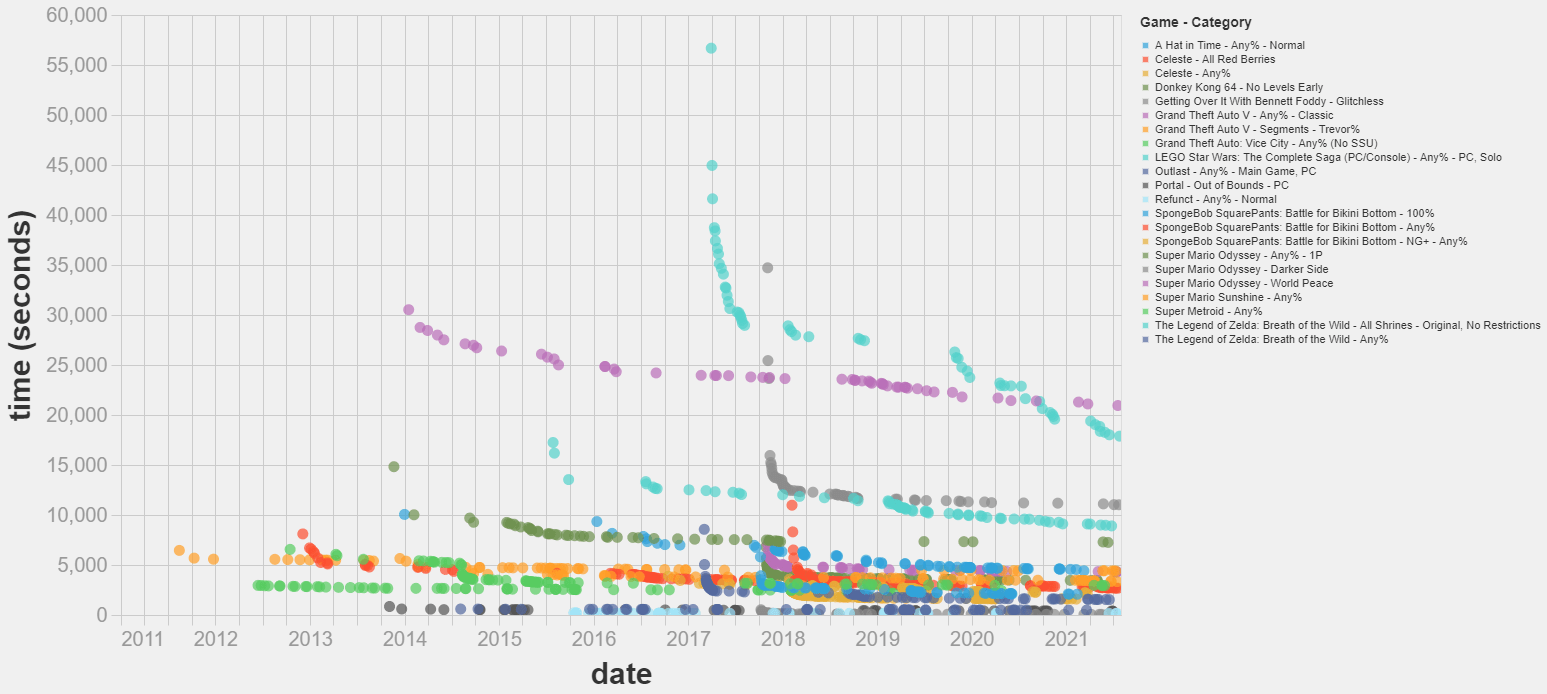
Feedback on the project would be appreciated. I am specially keen on discussion about:
- Differences and commonalities to expect between speedrunning and technological improvement in different fields.
- Discussion on how to mathematically model the discontinuities in the data.
- Ideas on which techniques to prioritize to extrapolate the observed trends.
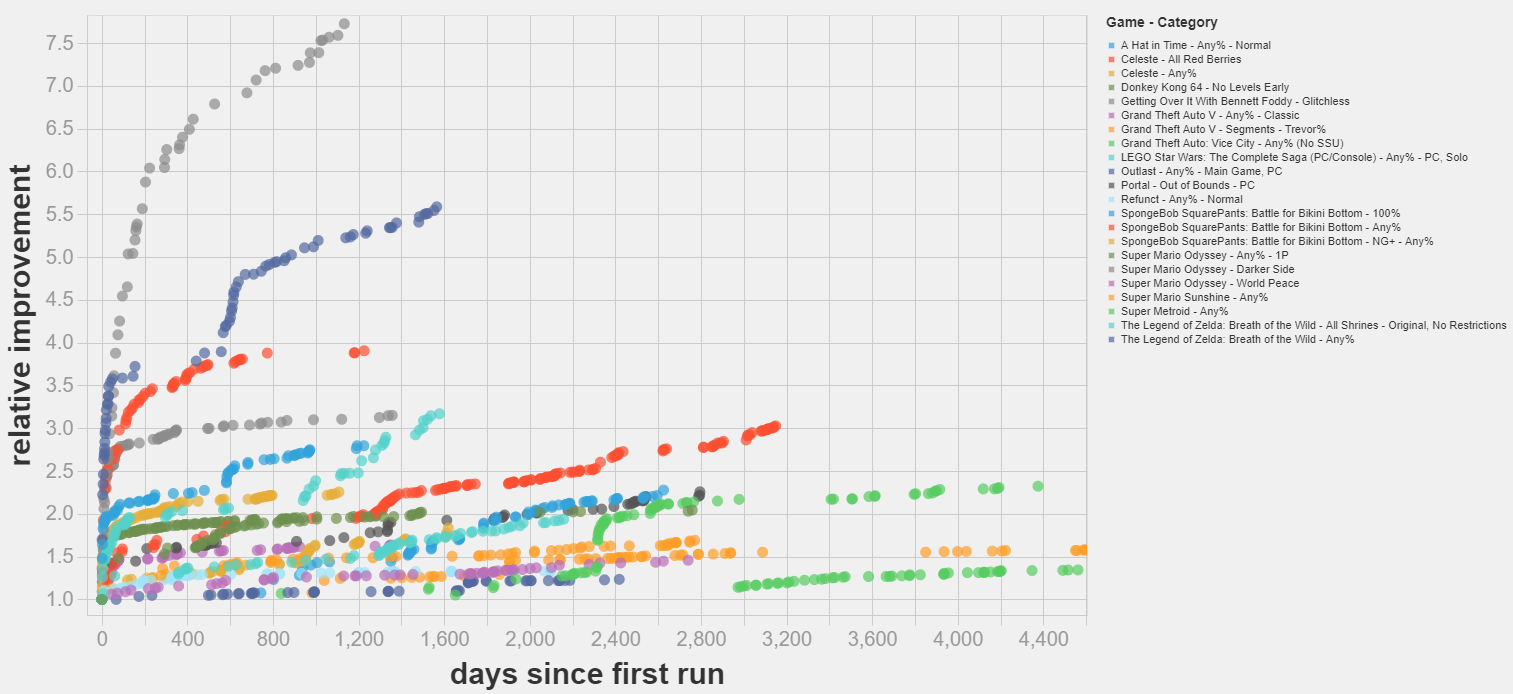
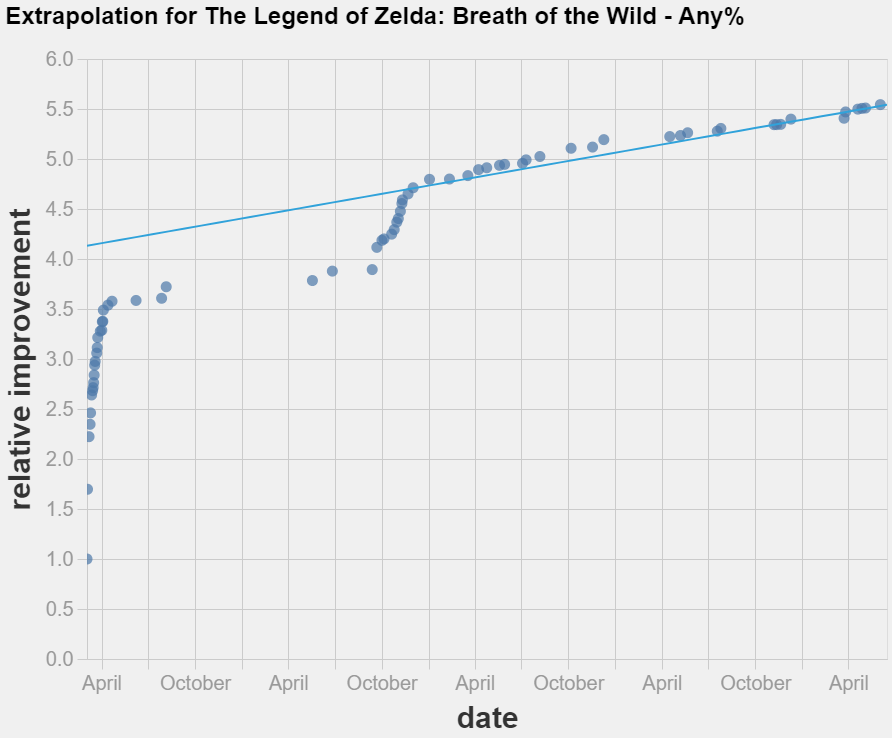
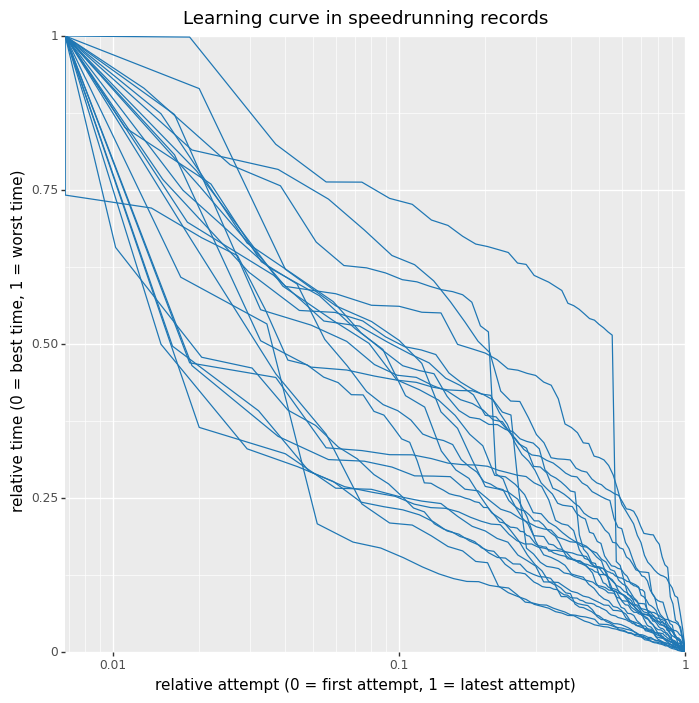
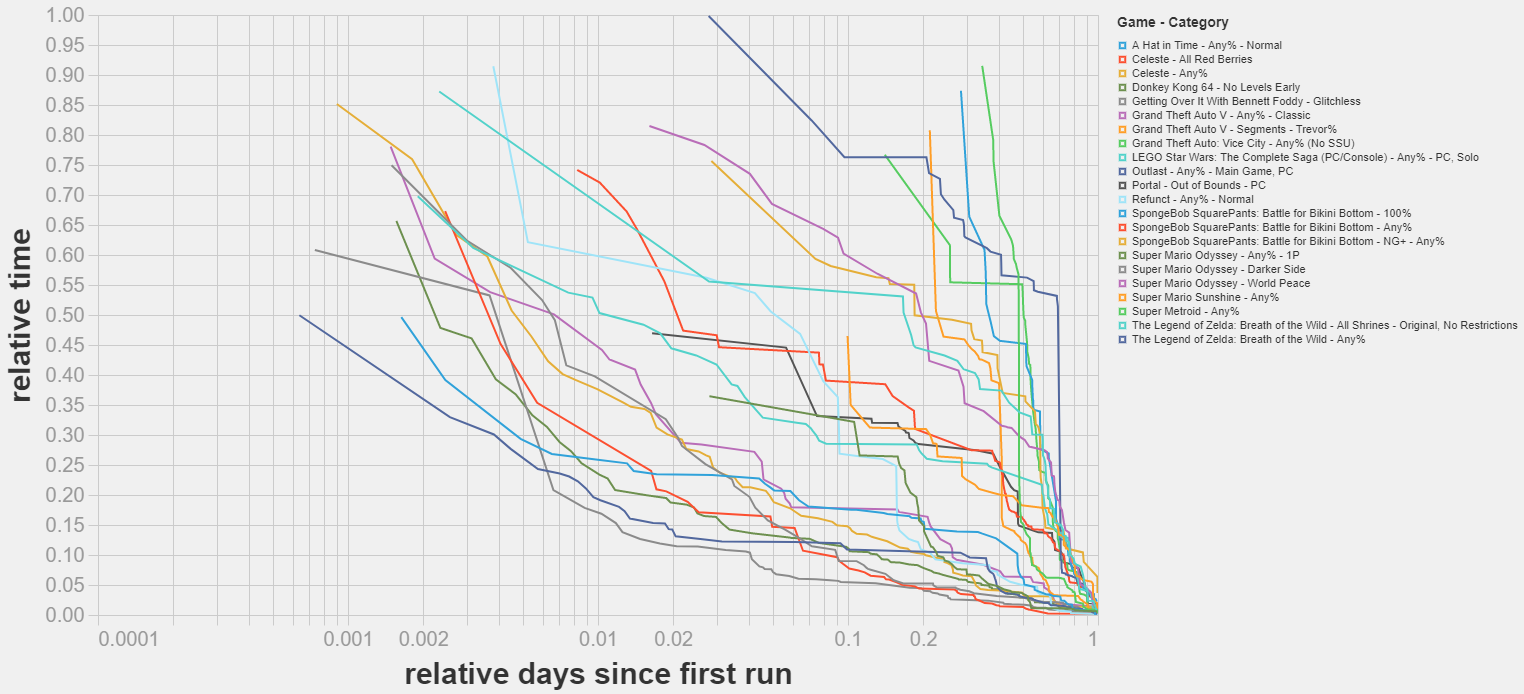
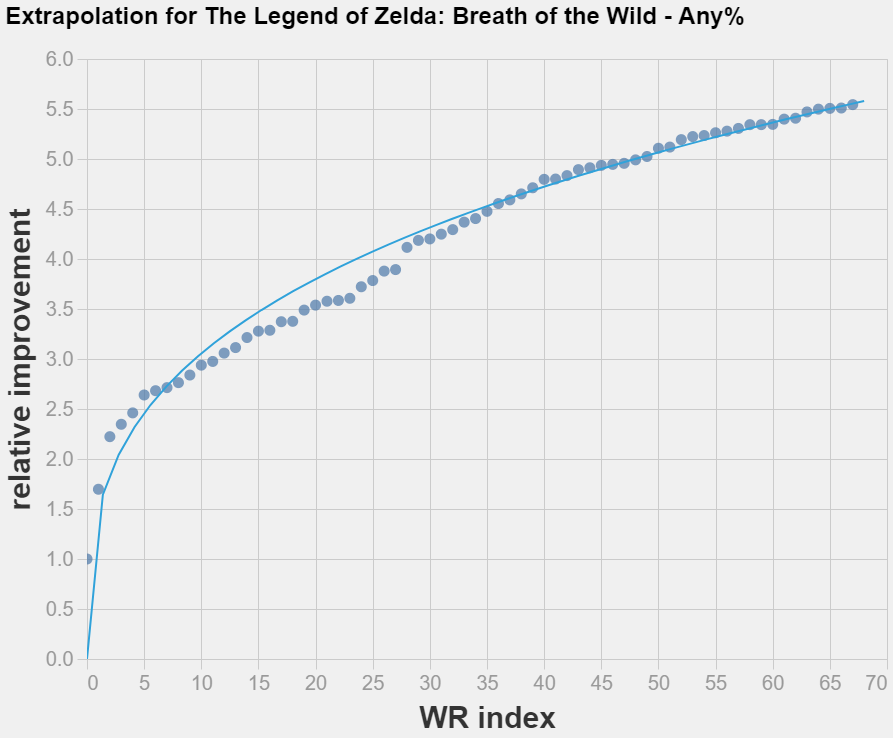
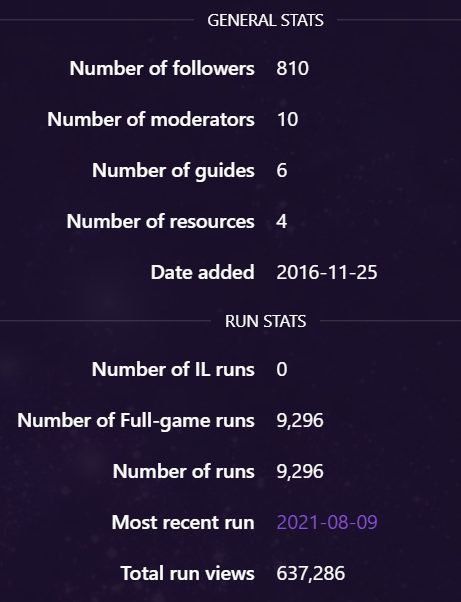
I stuck this on Twitter already, but normalised these shake out to a consistent-ish set of curves
code
Update: I tried regressing on the ordinal position of the world records and found a much better fit, and better (above baseline!) forecasts of the last WR of each category.
This makes me update further towards the hypothesis that
dateis a bad predictive variable. Sadly this would mean that we really need to track whatever the index in WR is correlated with (presumably the cumulative number of runs overall by the speedrunning community).